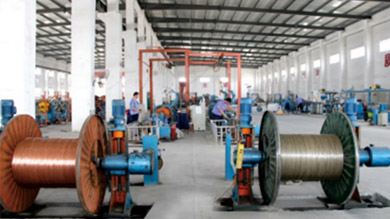10 月 . 05, 2024 15:19 Back to list
Understanding Electric Wiring and Cable Types for Your Projects
Understanding Electric Cable Wires Their Importance and Applications
Electric cable wires are an essential component of modern electrical systems, serving as the conduits that transfer electrical energy from one point to another. These cables are composed of multiple wires, often insulated to prevent short circuits and ensure safety. Understanding the different types of electric cables, their construction, and applications can help one appreciate their role in our daily lives.
Types of Electric Cable Wires
Electric cables come in various types, each designed for specific applications. The most common types include
1. Single-Core Cables These cables consist of a single conductor and are primarily used for electrical installations where flexibility is not a major concern. They are often utilized in fixed installations such as lighting or power distribution in buildings.
2. Multi-Core Cables As the name suggests, these cables contain multiple conductors, allowing for greater flexibility and utility. They are frequently used in applications that require intricate wiring, such as controlling machinery or connecting complex electronic devices.
3. Armoured Cables These cables are designed for outdoor or industrial use, featuring a protective layer of armor that protects the wires from physical damage. They are used in environments where cables may be exposed to hazards, such as construction sites or areas with high foot traffic.
4. Fibre Optic Cables By using light to transmit data, fibre optic cables are crucial for high-speed internet and telecommunications. They consist of thin strands of glass or plastic that carry signals over long distances with minimal loss.
electric cable wire

Construction of Electric Cables
The construction of electric cables typically involves several layers. At the core, you have the conductor, usually made of copper or aluminum due to their excellent electrical conductivity. Surrounding the conductor is insulation material, which prevents electrical leakage and protects against environmental hazards. Some cables may also include additional layers such as shielding to block electromagnetic interference and outer sheathing for further protection against moisture and physical damage.
Applications of Electric Cable Wires
Electric cable wires have vast applications across various industries. In residential settings, they are vital for wiring electrical outlets, lighting fixtures, and appliances. In commercial buildings, these cables facilitate the operation of HVAC systems, elevators, and computers. The telecommunications industry relies heavily on fibre optic cables for high-speed data transfer, while industrial sectors utilize a range of cables for machinery, sensors, and automation.
Moreover, electric cable wires are not limited to stationary applications; they are also essential in automotive and aerospace industries, where lightweight and durable wiring solutions are necessary for performance and safety.
Conclusion
In summary, electric cable wires are indispensable in our technological landscape, underpinning everything from our homes to advanced industrial machinery. Understanding the different types, construction, and applications of these cables empowers us to appreciate their role in powering our lives. As technology continues to evolve, the demand for more efficient and innovative cable solutions will only grow, making this field an exciting area of development. Whether you are an engineer, a DIY enthusiast, or just a curious individual, knowing about electric cables enhances your understanding of the electrical systems that power our world.
Share
-
Understanding the Differences Between Wafer Type Butterfly Valve and Lugged Butterfly ValveNewsOct.25,2024
-
The Efficiency of Wafer Type Butterfly Valve and Lugged Butterfly ValveNewsOct.25,2024
-
The Ultimate Guide to Industrial Swing Check Valve: Performance, Installation, and MaintenanceNewsOct.25,2024
-
Superior Performance with Industrial Swing Check Valve: The Essential Valve for Any SystemNewsOct.25,2024
-
Industrial Swing Check Valve: The Ideal Solution for Flow ControlNewsOct.25,2024
-
You Need to Know About Industrial Swing Check Valve: Functionality, Scope, and PerformanceNewsOct.25,2024